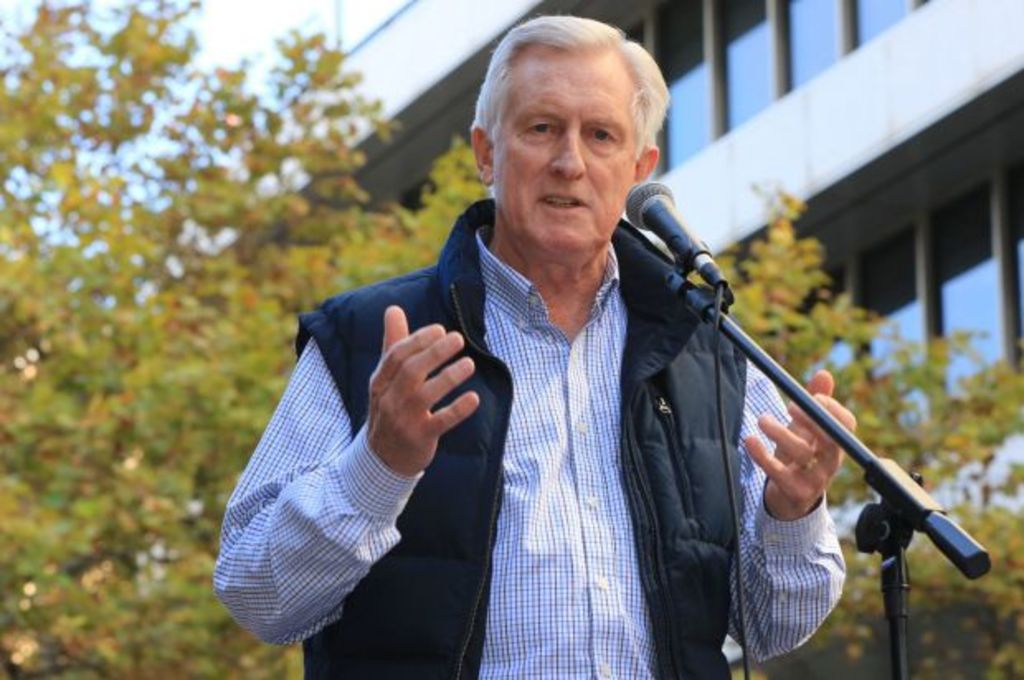Australia's housing affordability crisis 'intergenerational theft': John Hewson

Short-term, populist politics in Australia has kicked the issue of housing affordability down the road for decades causing “intergenerational theft” for young Australians, according to former Liberal leader John Hewson.
Despite a range of housing affordability measures implemented at state and federal levels in the past year, Mr Hewson believes the issue is now a “crisis” after all levels of governments failed to set and deliver a national strategy to solve the problem for several years.
“We haven’t had a government prepared to stand up to set a medium-term policy agenda in any area and seek to deliver it,” Mr Hewson told Domain.
“Problems don’t get solved … they get kicked down the road, and when you kick issues like housing affordability down the road or budget repair down the road, or climate change down the road, you are stealing from the next generation who are just going to be left to try and solve those problems.”
Mr Hewson says broad-based tax reform is needed to urgently repair the multi-decade problem and begin rebalancing the tax system, which has been to the detriment of younger generations of Australians, albeit inadvertently.
He argued housing-related taxes such as negative gearing needed to be grandfathered and capital gains concessions that investors benefit from capped over time.
“If you have a package that goes right across personal tax, company tax, GST, state taxes … do it as a whole I think you’ve got a chance to argue the case that overall tax reform will be beneficial to the country, while within it there will be groups of winners and losers that will have to be assessed against the obvious national advantages of the reform,” Mr Hewson said.
Since last year, federal and state governments have been tinkering with some policy areas including stamp duty exemptions and discounts for first-home buyers, larger first-home buyers grants and a “super scheme”, allowing first-home buyers to save for a house deposit by making extra contributions into their superannuation while being taxed at a lower than normal rate.
Some younger Australians have reaped the benefits of these initiatives with the number of new first-home buyers rising to a five-year high in November 2017, with first-home buyer loans making up 18 per cent of all owner-occupier mortgages, according to ABS data.
However a recent study by the Australian Housing and Urban Research Institute (AHURI) found the bulk of government’s housing expenditure continued to be heavily skewed towards wealthy homeowners.
Tackling the issue has proven to be a politically fraught policy area, said Mr Hewson, and one that required strong leadership and bipartisanship from both sides of government rather than a “political contest” and point-scoring.
He said an example of this was the federal government’s “scare campaign” against Labor’s proposal to scrap negative gearing instead of engaging in a serious debate to solve the housing affordability problem.
When the office of Federal Treasurer Scott Morrison was asked to comment, they declined.
Mr Hewson said with a whole generation of Australians locked out of the housing market, the result of the next election could hinge on the country’s youth.
“The youth of Australia underestimate how much political influence they can have if they work together. We’ve seen what difference the youth vote made in the UK, for example in the recent election … they would have swung the Brexit vote and they certainly almost cost her [Theresa May] government,” Mr Hewson said.
We recommend
We thought you might like
States
Capital Cities
Capital Cities - Rentals
Popular Areas
Allhomes
More
- © 2025, CoStar Group Inc.







